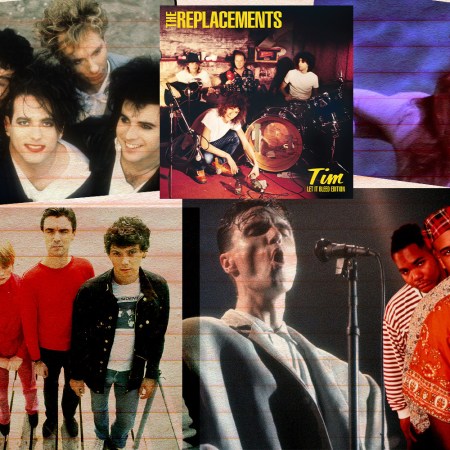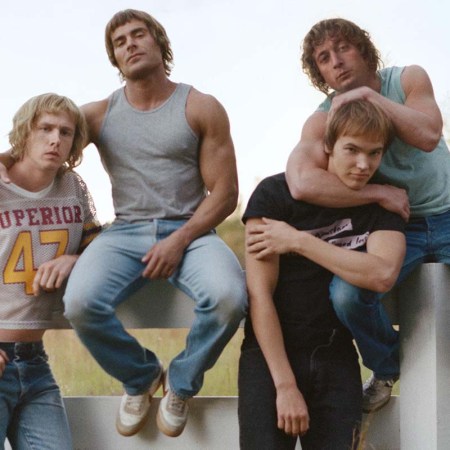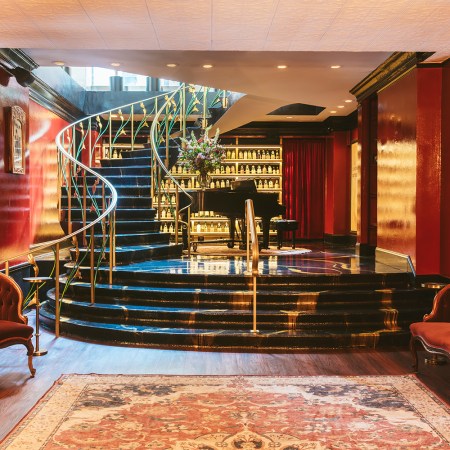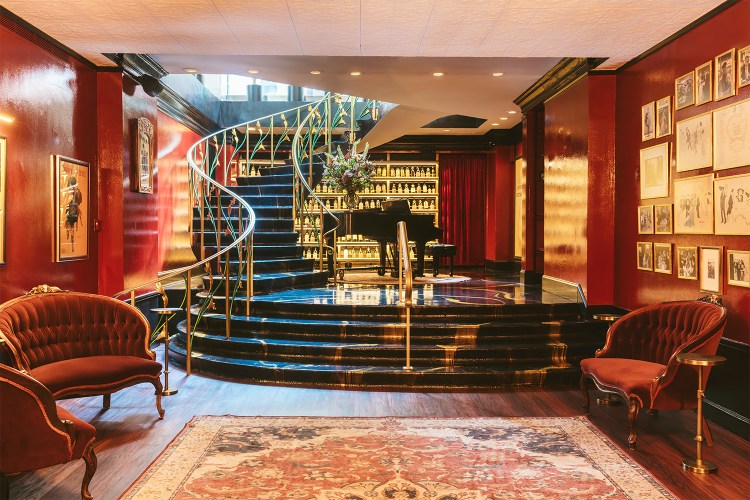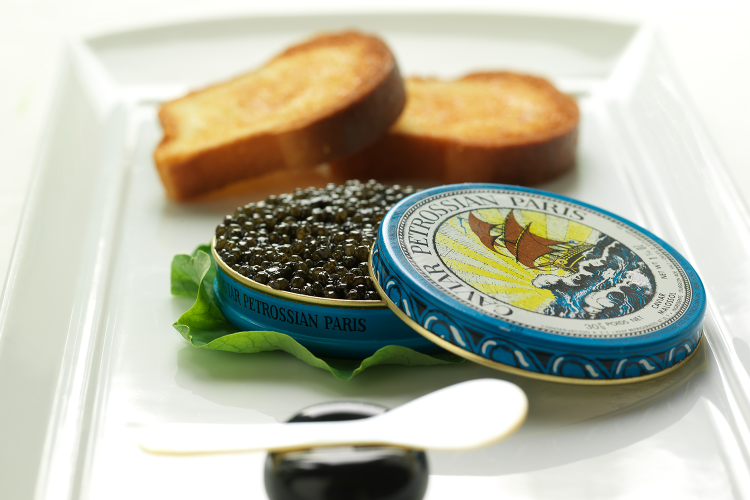There’s a widespread misunderstanding that the late Shane MacGowan drank copious amounts of whiskey and smoked copious amounts of cigarettes. It would, in fact, be more accurate to say that Shane MacGowan was whiskey and cigarettes. But he also so much, much more than that.
The Pogues’ frontman was one of music’s greatest charming bastards, the rogue that you keep throwing out (very often literally), only to let them come home, because all they have to do is flash that sweet Irish boy smile, and you remember all the good times.
Appropriately enough for the author of one of the all-time great Christmas songs, MacGowan was born on December 25 in Pembury, Kent. The child of Irish immigrants, he grew up bouncing back and forth between Ireland and England during a time period of prolonged political strife between the countries. He was both a prodigious writer and a prodigious troublemaker at a young age, as he was awarded a scholarship to prestigious Westminster School, only to be kicked out in his second year for possession of drugs.
His life was literally changed by The Clash, as a photo of his face covered in blood, a result of him getting just a bit too into the gig, was printed in local newspapers with the headline “Cannibalism at Clash Gig,” thus making him a local legend.
He immediately capitalized on his newfound notoriety, forming a band called the Nipple Erectors, which was later shortened to The Nips. But it was his next band The Pogues which would truly make him a legend.
Forming in 1982 shortly after MacGowan met co-singer-songwriter Spider Stacy at a Ramones gig, The Pogues fused the rebellious spirit and energy of the punk explosion with the traditional Celtic music MacGowan and the rest of the band members grew up on. (The merging of a traditional form of music with youthful punk vigor would eventually go on to set the template for the American alt-country that would spring up a decade after The Pogues.)
In 1984, their independently released single “Dark Streets of London” showed MacGowan’s flair for storytelling and his first-hand understanding of day-to-day people drowning their frustration in lager (“And I’m buggered to damnation and I haven’t got a penny”) and coupled with their version of the Irish traditional song “Waxie’s Dargle,” they built a local buzz. Later that year, The Pogues released their debut Red Roses for Me, which while heavy on instrumentals and energetic covers of traditional standards, still showed that MacGowan already had a fully formed authorial voice, as shown by the panoramic exploration of urban squalor “Down in the Ground Where the Dead Men Go.”
The 35 Saddest Christmas Songs
The holidays are going to be rough this year. Lean into it with these devastatingly great odes to being blue on Christmas.The Pogues’ 1985 follow-up Rum Sodomy & the Lash, produced by Elvis Costello, made them something approaching famous in the UK, and college radio and critical favorites in the States. The album found MacGowan looking hard but not without mercy at both of his home countries, finding empathy for people on the lowest rungs of a society riven by Thatcher-era austerity and desensitized by political violence. The opening lines on “A Pair of Brown Eyes” got right to the point: “One summer evening, drunk to hell/I sat there nearly lifeless” and you never doubted for a moment that MacGowan got desperation and hopelessness of the people he wrote about, drank with and loved. And he took care to immortalize them in song, and he loved them enough to never forget to mention the precious moments of joy that made it all worth it, and the copious amounts of humor they used to get through the day.
MacGowan has said his parents gave him Guinness to help him sleep as a toddler, and he had claimed that he had his “first Guinness at 6, my first bottle of whiskey at 7.” While normally my instinct is to be dubious of this sort of rock star self-mythologizing (I truly doubt a literal baby could drink a bottle of whiskey and not die immediately afterwards), I have to admit…this probably tracks. MacGowan was a lifelong heavy drinker and substance abuser, who was kicked out of the Pogues in 1991 and who had severe health problems later, including the encephalitis that ended his life far too soon. As we’ve, to some rather minor extent, matured as a society, we’ve grown to look askance at the tales of debauchery of the classic rock era, and to recognize that making people like MacGowan, people who suffered from a real disease, into caricatures, cartoon-like creatures really, is a way to launder the icky disconnect between loving a person’s art and finding their foibles amusing, while also acknowledging that a human being was killing himself in front of us, in part for our amusement.
There’s no real way of squaring how ghastly it could all be. Was MacGowan born with one of the richest yet immaculately singed voices of his era, or did he earn it through some very poor lifestyle choices? MacGowan knew he was a total lout and fuck-up, and this taught him to have kindness and understanding for his fellow dregs, and to train his ire on the bastards that truly deserved it. Would he have been better if he had made better decisions? Would the world? This can’t be answered, but I bet MacGowan would tell me to shut up and have another round for even raising the thought.
In America at least, The Pogues and MacGowan are best known for “Fairytale of New York,” the best Christmas song of the past 50 years. Co-written by Jem Finer and featuring Kirsty MacColl on vocals, it’s been said that the entire song exists because Costello all but dared the band to write a Christmas ballad, implying that MacGowan didn’t have sentimentality necessary for the assignment. But no Irishman has ever been found guilty of lacking sentimentality.
The song is MacGowan at his best, showing his gifts for sly humor and his flair for writerly imagery, mentioning the “drunk tanks” in the first line. But he also knew that the end of the year is very often a melancholy time, one when people take stock of their lives and find they don’t like where they are at and don’t know how to change, and either they cling to what makes them feel safe or lash out in fear. Or perhaps, both.
MacGowan and MacColl inhabit a couple, commonly believed to be in the ‘40s, who immigrated to America with big dreams that didn’t quite pan out, and in the heat of a drunken fight, took it out on each other. (To his credit, MacGowan didn’t get too heated when radio stations started editing out the infamous homophobic slur, merely noting that it was what the character, not meant to an angel, would have said at the time, while conceding he understood why people didn’t want to hear the term.)
MacGowan knew that dreams sometimes, perhaps often, don’t come true. But he also knew that holding on to the hope that one day they will, in some small way, is sometimes the only thing that keeps people going, and he was kind enough to honor that hope in his songs, again and again. He kept the dreams of his countrymen, his fellow dregs and his fans with him, putting them with his own until the end.
This article was featured in the InsideHook newsletter. Sign up now.



